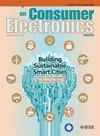推进安全自动驾驶汽车系统联邦学习的鲁棒性和隐私性
IF 10.9
2区 计算机科学
Q1 ENGINEERING, ELECTRICAL & ELECTRONIC
引用次数: 0
摘要
自动驾驶汽车系统(AVS)的快速发展正在改变交通方式,实现更安全、更高效的出行。然而,确保AVS生成的敏感数据的安全性和隐私性仍然是一个重大挑战。联邦学习(FL)已经成为AVS的一个很有前途的解决方案,它可以在互联车辆之间实现分布式机器学习,而无需共享原始数据,从而增强隐私。尽管有这些优势,但FL在自动驾驶环境中面临着严峻的挑战,包括高通信开销、延迟和对抗性攻击的脆弱性。为了应对这些挑战,我们提出了SecureFL,这是一个新的框架,旨在增强自动驾驶汽车系统中FL的鲁棒性和隐私性。首先,我们提出了一种联邦梯度符号攻击(FGSA)检测机制,使用分类器集合来识别和减轻试图破坏全局学习模型的对抗性攻击。然后,我们集成了一个基于图神经网络(GNN)的声誉系统,该系统基于数据质量评估车辆的可靠性,优先考虑来自可信赖来源的贡献,并动态调整参与FL过程。最后,我们介绍了一种利用速率分割多址(RSMA)技术的上行调度机制,以优化数据传输并减少延迟,确保AVS网络的高效通信。该框架的有效性通过真实AVS环境的模拟得到验证,证明了SecureFL在自动驾驶汽车联合学习中加强安全性、隐私性和通信效率的能力。这项工作有助于提高FL的鲁棒性和隐私性,实现更安全、更可靠的自动驾驶。本文章由计算机程序翻译,如有差异,请以英文原文为准。
Advancing Robustness and Privacy in Federated Learning for Secure Autonomous Vehicle Systems
The rapid development of Autonomous Vehicle Systems (AVS) is transforming transportation, enabling safer, more efficient mobility. However, ensuring the security and privacy of sensitive data generated by AVS remains a major challenge. Federated Learning (FL) has emerged as a promising solution for AVS by enabling distributed machine learning across connected vehicles without sharing raw data, thereby enhancing privacy. Despite these advantages, FL faces critical challenges in autonomous driving environments, including high communication overhead, latency, and vulnerability to adversarial attacks. To address these challenges, we propose SecureFL, a novel framework designed to enhance the robustness and privacy of FL in autonomous vehicle systems. First, we propose a Federated Gradient Sign Attack (FGSA) detection mechanism using an ensemble of classifiers to identify and mitigate adversarial attacks that attempt to corrupt the global learning model. Then, we integrate a Graph Neural Network (GNN)-based reputation system that evaluates the reliability of vehicles based on data quality, prioritizing contributions from trustworthy sources, and dynamically adjusting participation in the FL process. Finally, we introduce an uplink scheduling mechanism utilizing a rate-splitting multiple access (RSMA) technique to optimize data transmission and reduce latency, ensuring efficient communication across the AVS network. The framework’s effectiveness is validated through simulations in real-world AVS environments, demonstrating SecureFL’s capability to strengthen security, privacy, and communication efficiency in federated learning for autonomous vehicles. This work contributes to advancing the robustness and privacy of FL, enabling safer and more secure autonomous driving.
求助全文
通过发布文献求助,成功后即可免费获取论文全文。
去求助
来源期刊
CiteScore
7.70
自引率
9.30%
发文量
59
审稿时长
3.3 months
期刊介绍:
The main focus for the IEEE Transactions on Consumer Electronics is the engineering and research aspects of the theory, design, construction, manufacture or end use of mass market electronics, systems, software and services for consumers.

 求助内容:
求助内容: 应助结果提醒方式:
应助结果提醒方式:


